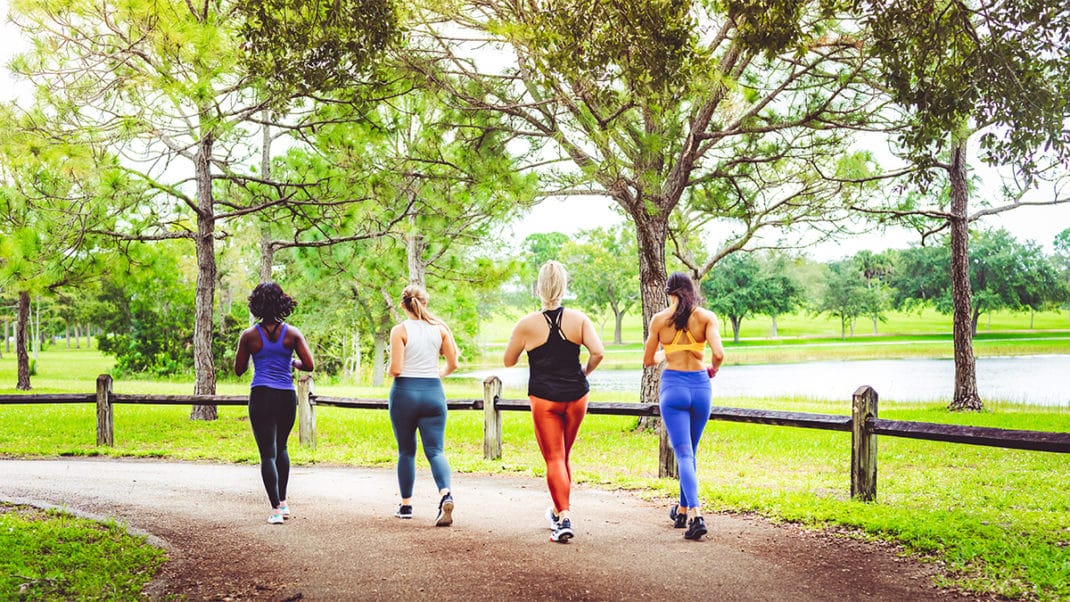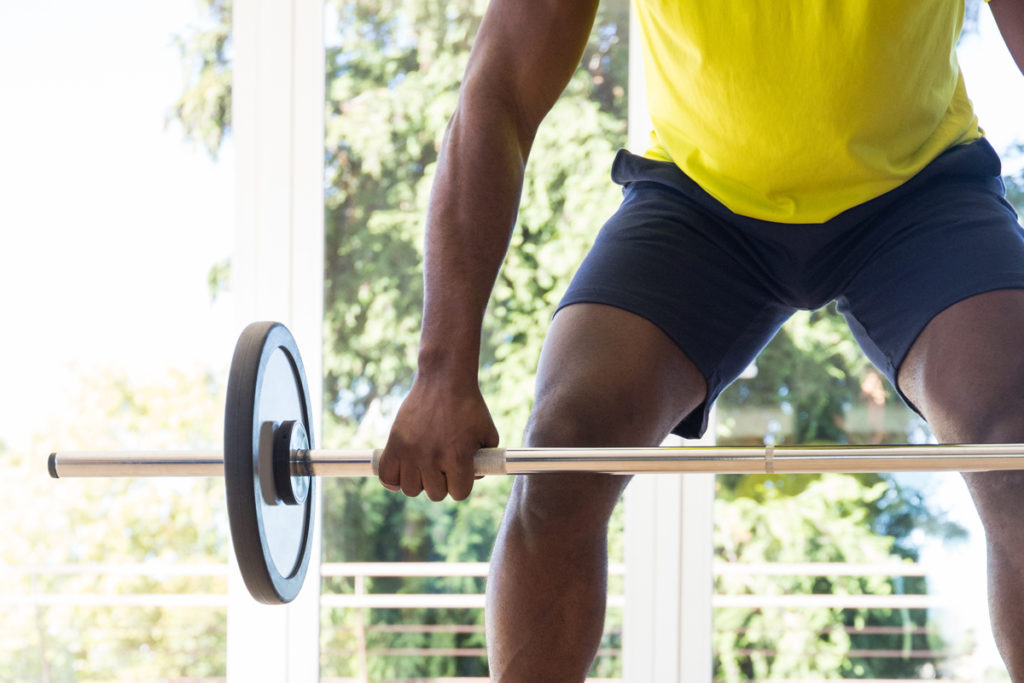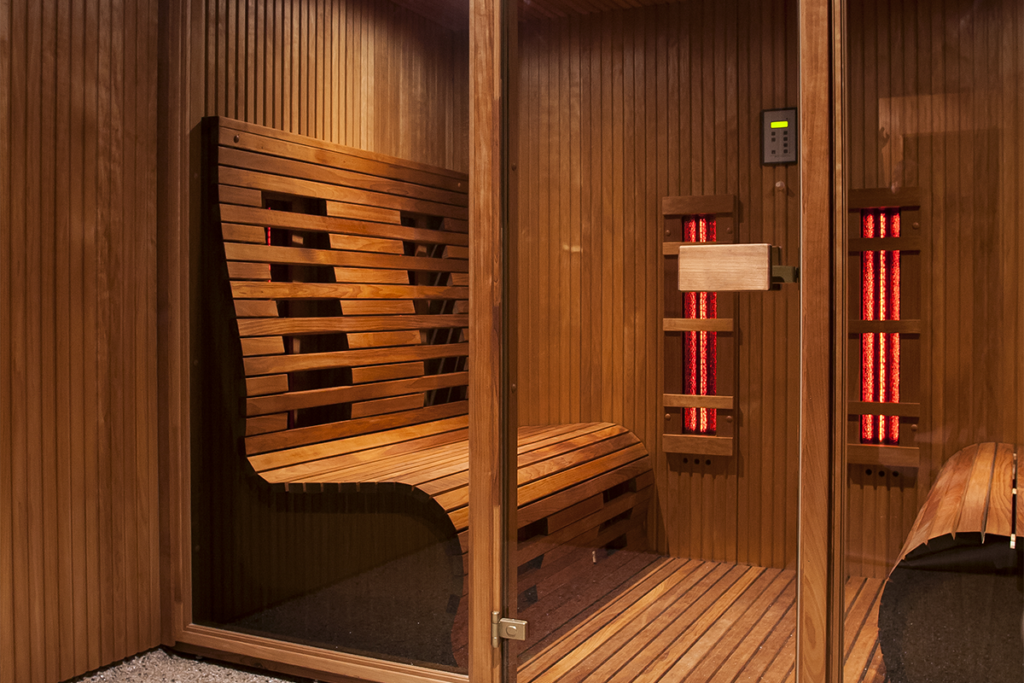Wet workout
When you think of using the pool for fitness, you probably imagine swimmers doing laps. Although swimming is a fantastic workout, it's time to rethink the pool as another frontier of fitness, a liquid athletic training ground, if you will.
So say goodbye to aqua aerobics, and make way for a new generation of water-based classes.
This summer, instructors across the country have been experimenting with new water fitness formats at clubs such as Equinox and The Sports Club/LA, both in Irvine.
There are two emerging schools of thought about the reinvention of water fitness. One treats the pool as a strength- and cardio-training room. Water provides natural resistance – the harder or faster you try to move or push through it, the more it will resist you. Sports drills that you might find easy to do on the gym floor, like executing a grapevine, can suddenly feel more challenging in the water. At the same time, water is gentle on the body, which is why it's used for injury rehab.
The other school of thought calls for adapting popular "land"-based formats – such as kickboxing, yoga and tai chi – to the water. There's even Poolates – Pilates in the pool. The premise is that if you flock to these formats on land, you might try them in water.
One of the things that differentiates these workouts from old-school aqua aerobics is that you're no longer working out to a beat. So if your sense of rhythm on the cardio floor draws horrified looks, you don't have to worry about keeping up with the tempo in a water fitness class.
"In a class, there are many different lengths of arms and legs, and abilities, so everyone is going to move at a different pace," said Mary Sanders, a Reno-based water fitness educator and a spokeswoman for IDEA, an international association of fitness professionals. "The class should look a little chaotic."
Sanders was on target. I watched recently as instructor Sandy Rigas paced poolside and put her Aqua Motion class through 50 minutes of athletic drills at Equinox. It immediately reminded me of sports-conditioning and boot-camp classes, except that here the movements looked slower, even though the participants were exerting a lot of effort.
They lifted aqua dumbbells to their sides to strengthen the shoulders, mimicked basketball jump shots and performed jumping jacks, among other activities. One of the hardest drills required them to swing a big Styrofoam noodle under their feet. None of it looked easy. Even the chiseled male fitness trainers who joined the class at the deep end of the pool looked like they were getting a challenging enough workout.
Lia Mason, a newcomer to the class, was surprised by what she discovered. "I didn't want to take the class," admitted Mason, 41, of Irvine, who runs, weight-trains and takes indoor cycling classes. "I didn't think I was going to get a full workout." But Rigas, an instructor for one of the classes Mason takes regularly, cajoled Mason into getting in the pool. In the end, Mason was a convert. "I liked it," she said. "I can see myself taking the class once a week."
Nicole Dishon of Newport Beach became an instant fan of water fitness classes two months ago when she tried one out of curiosity. "I work out on weight machines and the elliptical trainer. But this is my favorite workout," said Dishon, 26. The reason? "It's fun."
Still, there are no waiting lists to get into water fitness classes.
Stereotypes die slowly, and they die at a glacial rate for water fitness. "People think of old ladies and shower caps when they think of water fitness," said Norma Schectman, a water fitness instructor who teaches a class called Water Athlete at Sports Club/LA in Irvine.
Other people stay away from the pool because they loathe the idea of being seen in a swimsuit. No problem, Schectman said. "People have worn workout shorts in my class."
There's a decent body of knowledge that people can get fitness benefits from water-based strength and cardio-conditioning classes, Sanders said. But that's not true for newer formats such as kickboxing, yoga and Pilates in the pool.
Sanders raises valid questions. Do the movements and poses translate well in the water? Do we lose some fitness benefits since water supports us? Do these classes take full advantage of what water offers?
Are they … fun?
The first three are questions exercise researchers can address in studies. The last one is up to you.
CONTACT US: Lisa Liddane is an American Council on Exercise-certified group fitness instructor. 714-796-7854 or lliddane@ocregister.com





